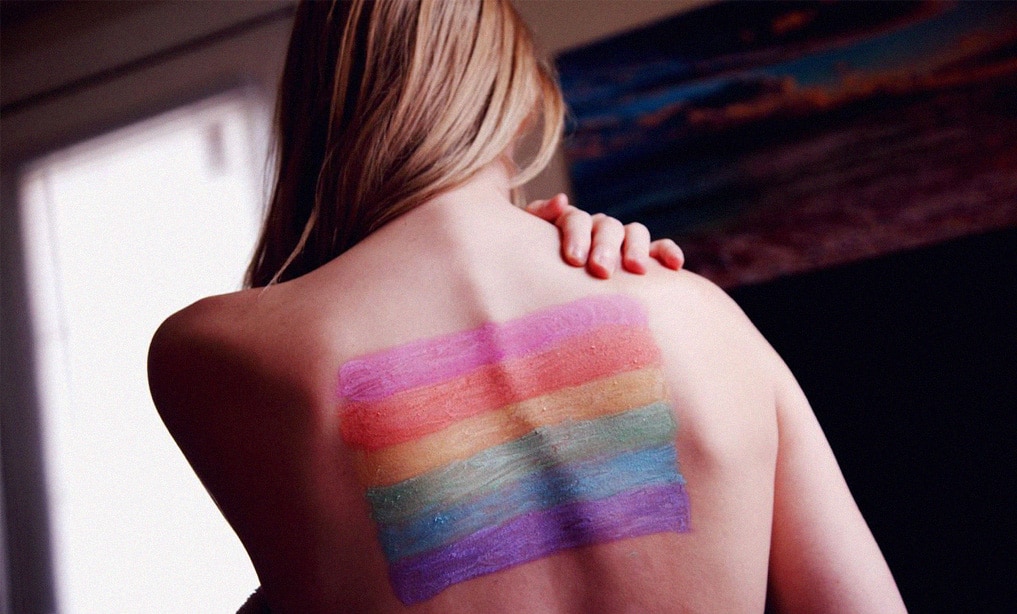TRANSGENDER youths and other kids in the gender minority face social discrimination as they change their personalities, a recent study among kids living in the United States showed.
The study published in Journal of the American Medical Association (JAMA) Network Open surveyed and assessed 104 youths aged 13 to 20 years who are transgender, and nonbinary or gender-fluid individuals for one year. Around 56 percent of these youth had moderate to severe depression and 43 percent reported self-harm or suicidal thoughts.
Lack of parents’ support and bully by peers among transgender and non-binary (TNB) youths contribute to the decline in their mental health, said the researchers in the study entitled “Mental Health Outcomes in Transgender and Nonbinary Youths Receiving Gender-Affirming Care.”
So they thought of using gender-affirming care to these TNB youths to see if there is any correlation to mental health.
Using puberty blockers and gender-affirming hormones, the authors found out that TNB youths had lower odds of depression and suicidal tendencies.
Puberty blockers are prescribed medication that temporarily suppress the body from releasing sex hormones such as testosterone and estrogen.
Gender-affirming hormones or feminizing hormone therapy induces the body to produce physical changes in the body that are caused by female hormones during puberty. Aside from blocking the hormone testosterone, it enhances the development of feminine secondary sex characteristics.
Authors said among those received gender-affirming hormones or puberty blockers had 60 percent lower odds of depressionm and 73% lower odds of self-harm or suicidal thoughts.
“This study found that access to gender-affirming care was associated with mitigation of mental health disparities among TNB youths over one year; given this population’s high rates of adverse mental health outcomes, these data suggest that access to pharmacological interventions may be associated with improved mental health among TNB youths over a short period,” the authors said in the study.
Although gender-affirming care has been associated with fewer negative long-term outcomes for these young people’s mental health, little is known about the influence between gender-affirming care and mental health shortly after the treatment began, the study noted.
In the Philippines, while there is no definite data on the exact population of transgender and non-binary youths in the country, and studies relating to the number of transgender and non-binary youths undergoing these procedures, gender-affirming treatments remain inaccessible for many due to discrimination and a lack of facilities catering to the needs of the transgender community.
Take the case of Christian Jessie Germar, a transgender woman.
Germar, 24, now known as “Cheska” by her friends, is a licensed professional teacher. Cheska has started undergoing hormone replacement therapy (HRT) since first year college. While other nations are conducting their treatments in multidisciplinary clinics, she is the one injecting hormones into her body as transition clinics are inaccessible in the province.
“I never felt like a man as I grew up, that’s why I started transitioning in college,” said Cheska in Filipino during an interview. “Before I was taking pills but when I learned about HRT, it’s when I started storing supplies of hormones which will last for a month.”
HRT is being conducted on a weekly or bi-weekly basis.
For Cheska, she is fortunate enough that she was given access to proper transition because every transgender youth is different, and some procedures might be detrimental to others.
“While self-injecting hormones is safe,” she said, “it remains harmful to those who are not given proper routine checkups before starting to transition that’s why I am sad that this is the face of the transgender community in the country because we should be given enough transitoning facilities in order to evaluate our bodies with appropriate procedures.”
Cheska said that when she transitioned, she felt free from that “man label” despite experiencing discrimination during the process.
“Aside from achieving equality, I hope we destigmatize LGBT kids undergoing gender transition. No one knows the struggle we are confronting through the years of being laced with discrimination, denial, abuse, and exclusion just because we are not part of the heteronormative society. Let these kids be happy; let them explore their real identity without being barred access from healthcare which is a primary tool for their transition. Let us not be the reason why LGBT children refuse to believe humanity exists.”
– Christian Jessie Germar, also known as “Cheska”
This was the reality for many transgender youths deprived of access to proper gender transition. Despite various measures and initiatives from different groups to uplift the lives of the gender minority, healthcare inclusivity remains elusive to the transgender community.
And it kills their dreams every day. Slowly.








